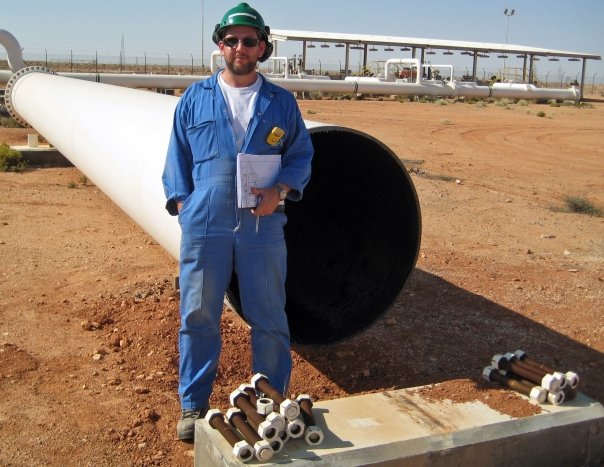I was intrigued by a post on LinkedIn that referred to a quote by Elon Musk:
https://www.linkedin.com/posts/activity-6766463951288053760-aAIw,
Elon is right. Why is he right?
The last 200 years have seen unprecedented growth in population, productivity and wealth, coupled with the acceleration of technological innovation [1], [2].
David Deutsch observed that [3]:
We use the practical and philosophical tools of science, technology and innovation (STI) to solve all manner of problems to improve our quality of life. There is no doubt that this technological revolution has been driven by freely available energy, sourced from carbon-based fuel that has a high energy density. White and Kramer’s paper shows how this technological revolution has led to an exponential reduction in the amount we spend on energy as a proportion of GDP [4].
I would argue this has been a virtuous circle, the more energy we have, the more we improve technology, which then allows us to access more energy more cheaply, and so on. Solow demonstrated that innovation is a mechanism for escaping the impact of depreciation and limiting factors of capacity in both capital and labour, the so-called ‘iron logic of diminishing returns’ [5], [6]. The benefits of this energy revolution are clear to see, access to energy, and the accompanying technological revolution has led to improved health and well-being for almost every person who lives on the planet today.
Hans Rosling from the GapMinder organization neatly illustrates this point in his video ‘200 years that changed the world’. https://youtu.be/BPt8ElTQMIg.
However, we do know that this growth has come at a high cost to the environment and species diversity. Climate change is an issue, and the main cause of global warming is anthropological and is related to greenhouse gas emissions. We also know that governments are committed to transition away from fossil fuels to renewable energy. The number of countries that have national legislation and strategies in place increased strongly up to 2012, but the increase has levelled off in recent years, now covering 70% of global emissions by 2017 (48% of countries and 76% of global population). [7].
A Schumpeterian approach to policymaking means that we use innovation to drive the ‘creative destruction’ of old technologies to create new technological pathways and drive economic progress [8]. So it is out with the old and in with new. In comes wind turbines and solar cells, out goes oil and gas.
In this process of technological revolution, it is easy to demonize what has gone before. It is not difficult to find social media posts that lambast the oil and gas industry and condemn the people who have dedicated a lifetime to supplying the energy that has driven the 200 year miracle of social progress.
I agree with Elon Musk, there is no point in demonizing oil and gas. If you drive a car, use plastic, fly to go on holiday shop at the local supermarket and buy Kiwi fruit in the middle of a British winter, then you also need to demonize yourself.
We are now in a position where our technological advancement, built on the back of ‘oil and gas’, allows us to choose another path to a future based on clean energy. This transition is not about what went before; this is about what we choose to do next. The people that work in oil and gas have a part to play; they have an enormous capacity to provide engineering, logistical and commercial skills required to deliver the energy transition. Many people working in this industry care about a clean energy future for their children just as much as the people working in the renewable industry or advocating change through an organization like Extinction Rebellion.
However, there are sins that we in rich countries, need to atone. There are sins that we all need to atone. We have benefited from oil and gas. West Africa has supplied much of that oil, yet vast numbers of people in this region still have no basic access to reliable energy. According to the Sustainable Goals Tracking Site, only 47% of people in sub-Saharan Africa have access to electricity (https://trackingsdg7.esmap.org/). In Nigeria, a country that exports about 900 million barrels of oil, only 10% of the population have access to clean cooking. In Nigeria, one of the biggest causes of under-five infant mortality is air pollution in the home [9].
The next revolution has to be fairer and more equitable. The next transition has to be more than ‘Who gets what, how and when’—everyone deserves to share the benefits of the next technological revolution.
It is also easy to believe that transition to renewable energy offers a bright new future that will save the planet and save the environment. However, while many of the policy goals for clean energy are compatible with environmental goals, there are also many conflicts. For example, biomass energy can impact food supply and lead to soil acidification, eutrophication, biodiversity, and erosion. For electric vehicles, material demand for batteries and fuel cells poses new challenges. Hydropower has a great negative impact on the flourishing of lakes and streams through direct losses of habitats from dams and habitation fragmentation caused by the barriers and dams [10].
In conclusion, many of us have benefited from the energy produced by the oil and gas industry. ‘Let those without sin cast the first stone’. An inclusive clean energy future must include those who have dedicated a lifetime to supplying the world with the energy required for the 200-year miracle. Energy transition must be inclusive and fair, and we cannot leave behind those that we left behind in the last energy revolution. Be honest with the part you have played in creating the climate and environmental problems we see today. Do not demonize an entire industry because it is the woke trend of the day.
I will leave the last word to Monty Python.
References
[1] S. Kuznets, “Modern Economic Growth: Findings and Reflections,” Am. Econ. Rev., vol. 63, no. 3, p. 247, 1973, [Online]. Available: https://www-jstor-org.ezproxy.sussex.ac.uk/stable/1914358?sid=primo&.
[2] S. Kuznets, Modern economic growth: rate, structure, and spread, vol. 7. New Haven, Conn: Yale University Press, 1966.
[3] D. Deutsch, The Beginning of Infinity: Explanations That Transform the World. Penguin Random House, 2011.
[4] E. White and G. J. Kramer, “The Changing Meaning of Energy Return on Investment and the Implications for the Prospects of Post-fossil Civilization,” One Earth, vol. 1, no. 4, pp. 416–422, 2019, doi: 10.1016/j.oneear.2019.11.010.
[5] R. M. Solow, “Perspectives on Growth Theory,” J. Econ. Perspect., vol. 8, no. 1, pp. 45–54, 1994, doi: 10.1257/jep.8.1.45.
[6] A. Tabbarok, “The Solow Model and the Steady State,” 2016. https://www.youtube.com/watch?v=LQR7rO-I96A.
[7] G. Iacobuta, N. K. Dubash, P. Upadhyaya, M. Deribe, and N. Höhne, “National climate change mitigation legislation, strategy and targets: a global update,” Clim. Policy, vol. 18, no. 9, pp. 1114–1132, 2018, doi: 10.1080/14693062.2018.1489772.
[8] Nigerian Government, “Department of Climate Change Nigeria.” https://climatechange.gov.ng/.
[9] A. I. A. Olugbemisola W. Samuel, Sgolaha A. Oni, KC Samir, MArcus Wurzer, “Houselhold use of solid fuel for cooking and under-five infant mortality in Nigeria,” Africal Popul. Stud. Vol 32, No I (Supp), 2018, vol. 32, no. 1, pp. 4034–4042, 2018.
[10] R. Hildingsson and B. Johansson, “Governing low-carbon energy transitions in sustainable ways: Potential synergies and conflicts between climate and environmental policy objectives,” Energy Policy, vol. 88, pp. 245–252, 2016, doi: 10.1016/j.enpol.2015.10.029.





